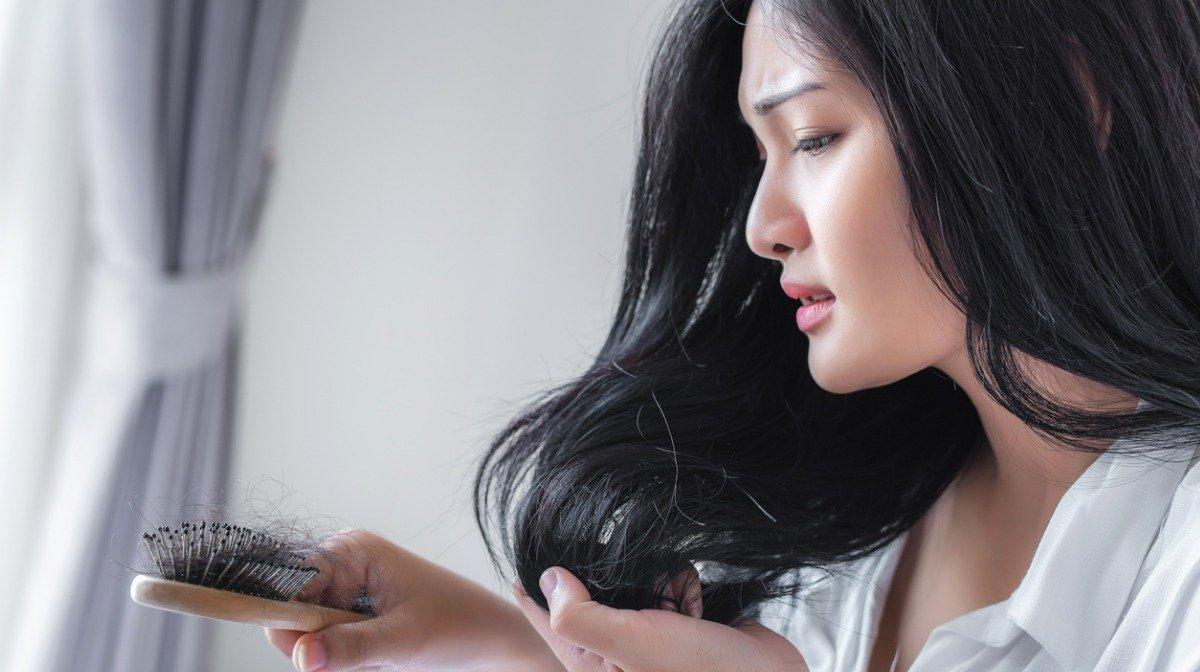
Is hair loss normal for a woman? Menopause Hair Loss issues
Understanding Hair Loss in Women Over 40: Navigating Menopause and Beyond
Dealing with hair loss can be a particularly challenging experience for women, especially those who are in their 40s and beyond. This stage of life often coincides with menopause, a time when hormonal changes can significantly impact hair health. If you're a woman over 40 and are concerned about hair loss, it's important to understand the factors at play and explore potential solutions.

Signs to Watch Out For
Menopause-related hair loss can manifest in various ways. It's important to pay attention to the following signs and consider them within the context of your unique situation:
1. Thinning Hair and Widening Part
One common sign of menopause hair loss is the gradual thinning of hair, especially around the crown area. You may notice your part widening or a reduction in hair density overall.
2. Increased Hair Shedding
During menopause, hormonal fluctuations can cause hair follicles to enter a resting phase prematurely. As a result, you may experience more hair shedding than usual, even though it's a natural part of the hair growth cycle.

3. Slower Hair Regrowth
If you notice that your hair takes longer to grow back after shedding, it could be an indication of menopausal hair loss. Reduced hair regrowth rate is a common feature of this condition.
Understanding Menopause-Related Hair Loss
Menopause is a time when a woman's body experiences significant hormonal shifts, particularly a decline in estrogen and progesterone levels. These hormonal changes can have a direct impact on the hair follicles, leading to hair thinning and increased shedding.
During menopause, the hair follicles become more sensitive to androgens, which are typically male hormones but also present in women. The increased sensitivity to androgens can cause the hair follicles to shrink and produce thinner, shorter hairs, resulting in a gradual loss of hair volume.
Exploring Hair Growth Solutions
If you're experiencing hair loss due to menopause, it's important to know that there are solutions available to help manage the condition and promote hair growth. One option worth considering is a hair growth shampoo specifically formulated to address menopausal hair loss.
Grow Me Shampoo is a hair growth shampoo that can be beneficial for women over 40. Its unique formulation contains essential nutrients and vitamins that nourish the hair follicles, stimulate growth, and promote overall hair health. Regular use of this shampoo can help combat menopausal hair loss and improve the appearance and thickness of your hair.
In addition to using a targeted shampoo and conditioner, it's important to adopt a holistic approach to hair care. This includes maintaining a healthy diet rich in vitamins and minerals, managing stress levels, avoiding excessive heat styling, and using gentle hair care products. Consulting with a healthcare professional or a trichologist who specializes in hair and scalp health can also provide personalized guidance and recommendations.
Remember, hair loss during menopause is a common concern, and you're not alone in this journey. By understanding the underlying causes and exploring appropriate hair growth solutions, you can embrace your natural beauty and navigate this phase of life with confidence.
Hair loss is something that many of us may have to deal with – and rest assured that it’s completely normal. However, if you’re concerned that you’re losing more strands than usual, these expert tips will help you determine how much hair loss is normal for you and what to do about it.
Understanding Hair Loss in Women: What's Considered Normal?
When it comes to hair loss in women, several factors can contribute to this common concern. From hormonal changes and rapid weight loss to new medication and increased stress levels, various elements can affect the health and thickness of our hair. In some cases, genetics can also play a role.
It's important to pay attention to these potential triggers and assess if any of them apply to your situation. If you're experiencing hair loss and none of the aforementioned factors seem to be the cause, it's advisable to schedule an appointment with your GP.
A medical professional can assess your condition and provide further guidance. They may conduct tests to rule out alopecia areata, an autoimmune disease that causes hair to fall out in patches. Additionally, they can investigate other potential causes of your hair loss to ensure a comprehensive evaluation.
Remember, seeking medical advice can help you gain a better understanding of your specific situation and provide you with tailored recommendations for managing and treating your hair loss. Read more about menopause hair loss and how to treat it













